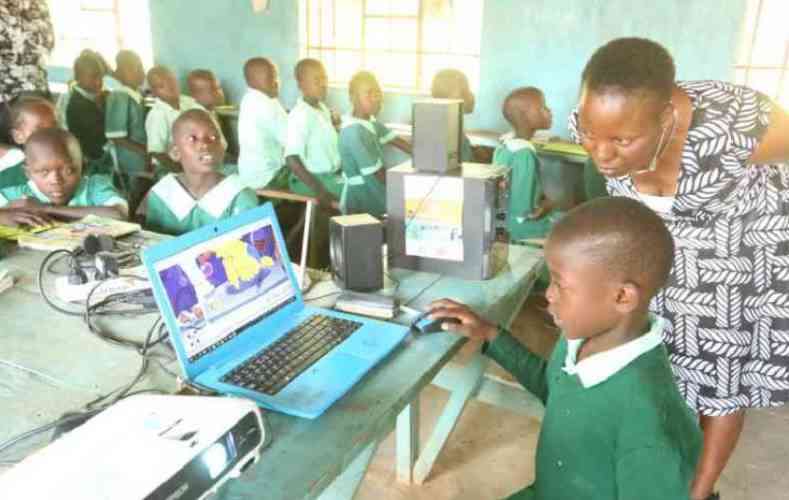Every business that calls itself responsible and sustainable has, no doubt, thought about people, the environment and profit as part of its core business strategy. Indeed, businesses that seek to maintain or improve on profit margins at all times should make it part of their business to directly improve the livelihoods of people and the quality of their surrounding environment.
With the Covid-19 pandemic, business leaders, employees and the general public are anxious. Covid-19 is a threat to human life, businesses and the economy. With its impact being felt worldwide, and still evolving, businesses are urgently activating their contingency plans to respond to the pandemic. How well businesses respond to the crisis will greatly define their recovery phase as well.
Many businesses have probably enforced Covid-19 precautionary measures regarding employees, and to some extent, customer safety and health. Such measures include the provision of additional sanitation facilities such as sanitiser dispensers at work stations, providing portable sanitisers to staff, creating additional strategic hand washing points with enough soap and clean water, providing spacious work stations that can allow safe physical distancing and, of course, enabling employees to work from home.
Covid-19 has further stretched some businesses to even provide face masks to staff, subsidise their transport and even provide lunch meals.
But even as businesses quickly respond to Covid-19 disruptions, the disease presents them an opportunity for social responsibility. When everyone is worried about tomorrow, this is an opportunity for businesses to be present in the lives of local vulnerable communities.
It is an opportunity for businesses to give either donations or volunteer with their respective employees to work together with local administration and community leaders to do simple compassionate acts such as the provision of water, hand-washing water tanks, soap, sanitisers or even food for most vulnerable households. There are many other avenues where they can direct their acts of compassion; children homes, orphanages, homes for the aged, homeless people, just to name a few.
These are the times to give back to local communities. These are times for solidarity; times when businesses need to reconnect. This should not be for public relations, but to give back because it is their responsibility to do so. When this is done, local communities will remember the businesses for standing with them; for remembering them when everyone else was concerned about their own survival!
Covid-19 is a wake-up call for businesses to plan and budget for social responsibility, not only to respond to the current pandemic but as a way of being permanently present in the lives of local communities, transforming their lives and their environments. In the process, companies will also build their own brands.
Recently, President Uhuru Kenyatta ordered the formation of a Covid-19 Emergency Response Fund with the sole aim of mobilising resources to fight the pandemic. Kind gestures such as voluntary salary cuts of senior government officials and cash donations from corporates is a clear indication of the extent to which individuals and businesses can commit for social good. This spirit should continue even after the storm is over.
When individuals, governments and businesses work together they greatly improve societies. When we create more opportunities to uplift our local communities, we multiply the number of people who have directly benefited from our sacrifice. In future, chances that these beneficiaries will give back to the society are high.
They will remember the good that was done to them and also ‘plant a seed’. The ripple effect of these selfless acts will continue growing. With time, giving back to society will become a fundamental value.
Businesses should habitually give back to local communities by fully embracing social responsibility. They should not be moved to give only when there is a crisis or a pandemic. They should make it their responsibility to walk with the community on a daily basis.
That way, the economic status of everyone will improve, and thus the people’s purchasing power. Consequently, businesses will sell more of their products. Let’s learn then, to give more and we shall reap more.
Ms Munge is Group Sustainability Communications Manager, Cooper K-Brands Limited
Stay informed. Subscribe to our newsletter
 The Standard Group Plc is a
multi-media organization with investments in media platforms spanning newspaper
print operations, television, radio broadcasting, digital and online services. The
Standard Group is recognized as a leading multi-media house in Kenya with a key
influence in matters of national and international interest.
The Standard Group Plc is a
multi-media organization with investments in media platforms spanning newspaper
print operations, television, radio broadcasting, digital and online services. The
Standard Group is recognized as a leading multi-media house in Kenya with a key
influence in matters of national and international interest.
 The Standard Group Plc is a
multi-media organization with investments in media platforms spanning newspaper
print operations, television, radio broadcasting, digital and online services. The
Standard Group is recognized as a leading multi-media house in Kenya with a key
influence in matters of national and international interest.
The Standard Group Plc is a
multi-media organization with investments in media platforms spanning newspaper
print operations, television, radio broadcasting, digital and online services. The
Standard Group is recognized as a leading multi-media house in Kenya with a key
influence in matters of national and international interest.









